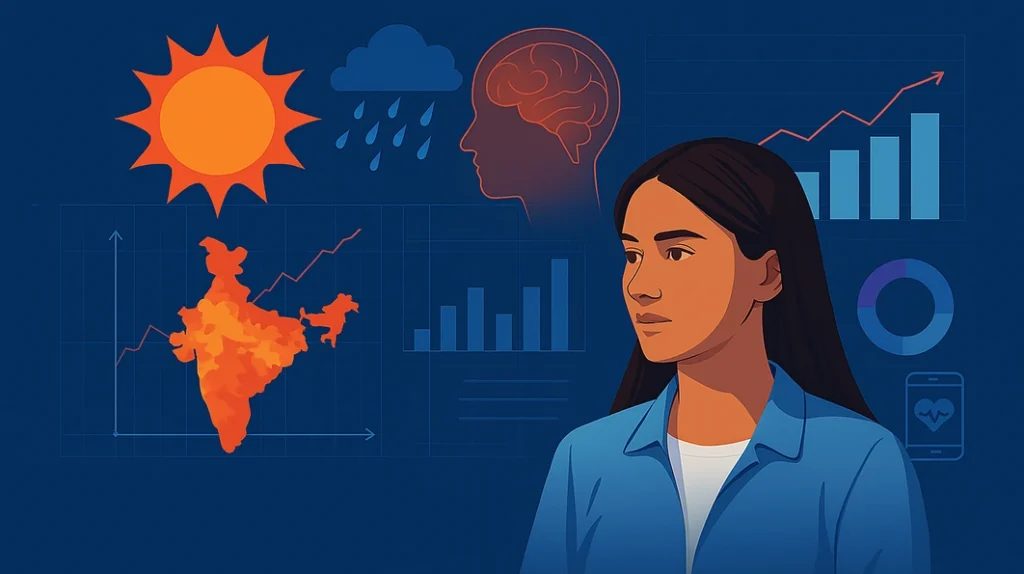New Delhi / Global : Public health careers are evolving fast in 2025, with employers seeking skills in data analysis, digital health, and policy-making. From epidemiology to hospital administration, here’s what students and professionals must know to stay ahead.

Public health is no longer limited to government programs or disease control. In 2025, the field is expanding rapidly into areas like digital health, climate resilience, mental health services, and health policy advocacy. Students and professionals who wish to build a career in public health must understand that employers today are not only looking for degrees but also for skills that make candidates effective in real-world challenges.
Why Public Health Careers Matter Today
Rising health inequalities, frequent climate-related health crises, and the growing demand for health data analysis mean that India and the world need more public health professionals. According to WHO estimates, the demand for trained experts in epidemiology, health policy, and hospital systems will double in the next five years. This creates a unique opportunity for MPH graduates and freshers who are ready to equip themselves with the right skills.
Top Technical Skills Employers Look for in 2025
Data Analysis and Biostatistics
Employers want professionals who can collect, analyze, and interpret health data. Whether it is disease surveillance or policy design, knowledge of tools like R, SPSS, or even Excel is highly valued.
Epidemiological Expertise
Outbreak management, contact tracing, and health risk assessment remain core to public health. A strong understanding of epidemiology ensures you can provide evidence-based solutions.
Digital Health & Technology Tools
From telemedicine platforms to AI-driven health monitoring systems, technology is reshaping healthcare. Students with exposure to digital health applications, GIS mapping, and EMR systems have an edge.
Health Policy and Systems Knowledge
Employers prefer candidates who can translate community health challenges into actionable policies. Understanding health financing, global health laws, and India’s National Health Mission (NHM) prepares students for leadership roles.
Essential Soft Skills for Public Health Professionals
- Leadership & Teamwork: Public health projects are multi-disciplinary. Team collaboration and decision-making are critical.
- Communication Skills: Whether writing policy briefs or engaging communities, clear communication builds trust.
- Cultural Sensitivity: Health solutions must respect local culture and diversity.
- Problem-Solving Mindset: Employers value professionals who can adapt to crises and create innovative solutions.
Career Pathways in Public Health (2025 Onwards)
- Epidemiologist – Working in research institutes, WHO, or national health bodies.
- Hospital Administrator (MHA Graduates) – Managing operations, finance, and digital health integration.
- Health Policy Analyst – Advising governments or NGOs on effective programs.
- Climate & Health Specialist – Addressing vector-borne diseases, heatwaves, and disaster management.
- Community Health Educator – Designing awareness campaigns at the grassroots level.
How to Start Your Career Journey
- Enroll in an MPH or MHA Program – Institutions like RIHS provide career-focused training and exposure.
- Take Short Online Certifications – Data science, digital health, or project management add to your skillset.
- Internships & Fieldwork – Gain hands-on experience with NGOs, hospitals, and government projects.
- Build a Portfolio – Document your research, projects, and campaigns to show employers your expertise.
Final Thoughts
Public health in 2025 is a dynamic and rewarding career path. Employers want professionals who can combine technical knowledge with empathy and leadership. Students who focus on both data-driven decision making and people-centered care will be in high demand.
At Ramyanti Institute of Health Sciences – RIHS, programs in MPH and MHA are designed to match these evolving skills. If you are planning to start your journey, now is the perfect time to take the first step.


